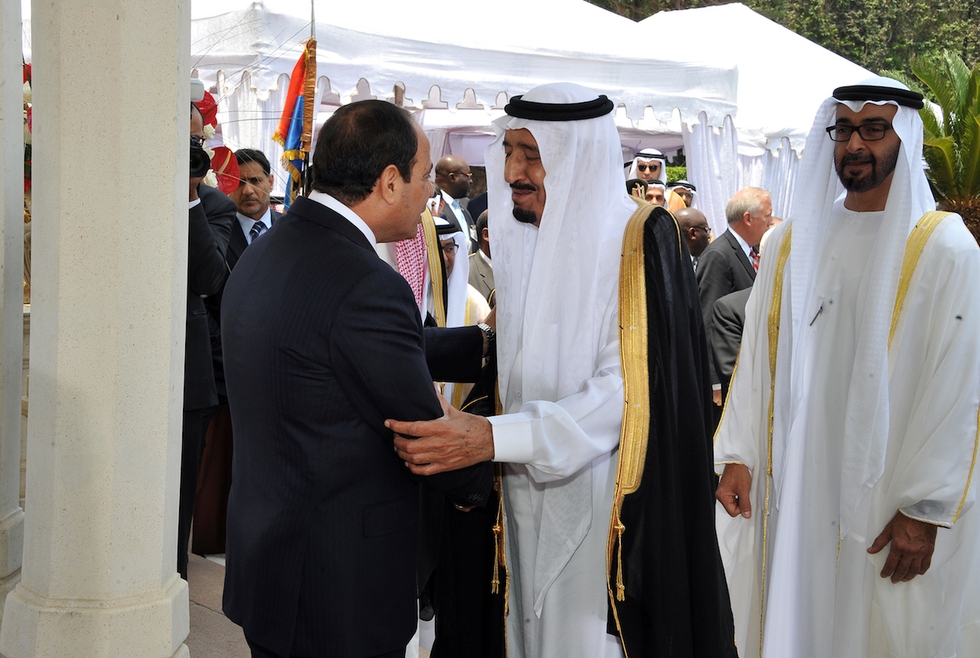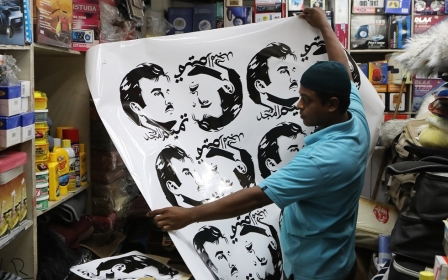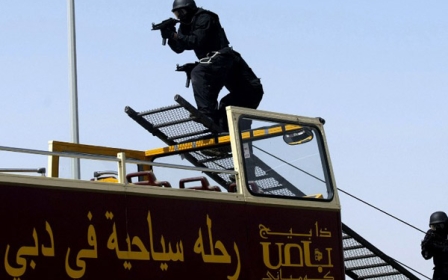Dubai security chief hails UAE, Egypt and Saudi leaders as 'next Arab Spring'

The head of Dubai's security services has said that a new Arab Spring is on the horizon and will be led by Saudi's King Salman, Abu Dhabi's Mohammed bin Zayed, and Egypt's President Sisi.
In a Twitter post on Monday afternoon, Dhahi Khalfan Tamim - head of general security in the UAE emirate - implied that the three rulers (referring to King Salman as the Custodian of Mecca), who have long been seen as opponents of the 2011 pro-democracy movement in the Middle East and north Africa, would lead a new wave of reforms in the region:
Translation: “The next Arab Spring will be led by three, the custodian of the two holy mosques, the President of Egypt Abdel Fattah al-Sisi and his royal highness Sheikh Mohammed bin Zayed”
The comments come as the diplomatic crisis between the Gulf Cooperation Council countries and Qatar continues to intensify.
The dispute erupted when Saudi Arabia, the UAE, Bahrain, Egypt and others broke ties with Qatar on 5 June, accusing it of backing extremism. Doha denies the claim.
The UAE state minister for foreign affairs, Anwar Gargash, said the dispute could be resolved "through diplomacy if Qatar renounces its support for extremism and terrorism".
"We don't want European mediation, and I don't think the Europeans want to be mediators. Their role should be to put pressure on Qatar," said Gargash.
"If Qatar follows the path of wisdom... we would need a system of guarantees and controls" in order to implement an accord with Doha, he said, calling for "European and American guarantees".
Gargash did not elaborate, but on Thursday the UAE and its allies Saudi Arabia, Egypt and Bahrain delivered a list of 13 demands to Qatar through mediator Kuwait, including one to close down Al Jazeera.
The last point on the list calls for the establishment of a 10-year mechanism, that would operate monthly for the first year, to ensure Qatar is complying with the agreement.
Doha was given 10 days to meet the ultimatum.
The first Arab Spring
During the Arab Spring period, Qatar was responsible for funding and hosting the leadership of numerous opposition activists, particularly Islamists, while Al Jazeera was seen as instrumental in giving voice to the movements to oust Middle Eastern dictatorships.
Much of this has enraged the Gulf states - the UAE and Saudi Arabia remain strong backers of Egyptian President Abdel Fattah al-Sisi, who ousted the Qatar-backed Muslim Brotherhood from power in July 2013.
Dhahi Khalfan is no stranger to social media controversy - in February he provoked outrage after he tweeted comments which seemed to justify sexual assault.
"When a woman says no, she really means to say yes / Swedish Proverb," he tweeted, leading to outcry from other Twitter users.
He also angered the Yemeni government when last month he tweeted that the removal of the president, Abd Rabbuh Hadi, was "a Gulf, Arab and international demand".
Sources close to Hadi told Middle East Eye that an angry confrontation took place between the Yemen president and Mohammed bin Zayed when Hadi flew to Abu Dhabi in an attempt to patch up differences over who controls Aden's airport, a key supply route for Emirati-backed troops and the Yemeni president himself.
He accused the UAE of behaving like an occupier of Yemen, rather than its liberator, and relationships are thought to have deeply soured between the two countries.
"What the UAE and the resistance have achieved is being demolished by Hadi," said Khalfan at the time.
"Is this a president who deserves that we deal with?"
Middle East Eye propose une couverture et une analyse indépendantes et incomparables du Moyen-Orient, de l’Afrique du Nord et d’autres régions du monde. Pour en savoir plus sur la reprise de ce contenu et les frais qui s’appliquent, veuillez remplir ce formulaire [en anglais]. Pour en savoir plus sur MEE, cliquez ici [en anglais].




